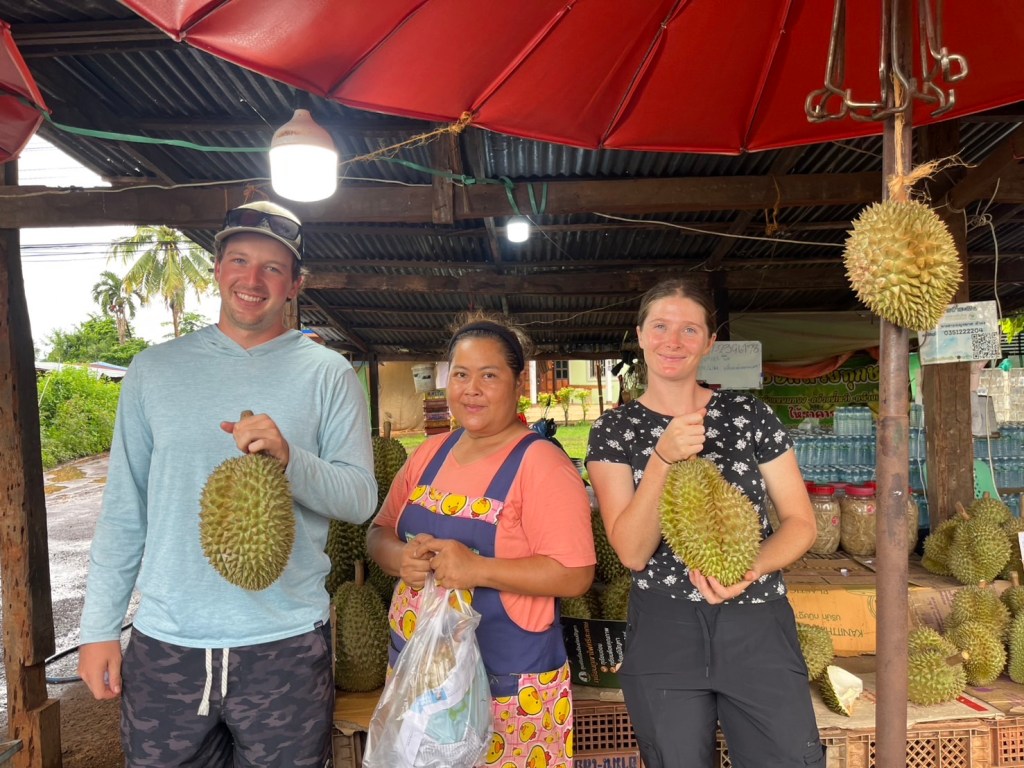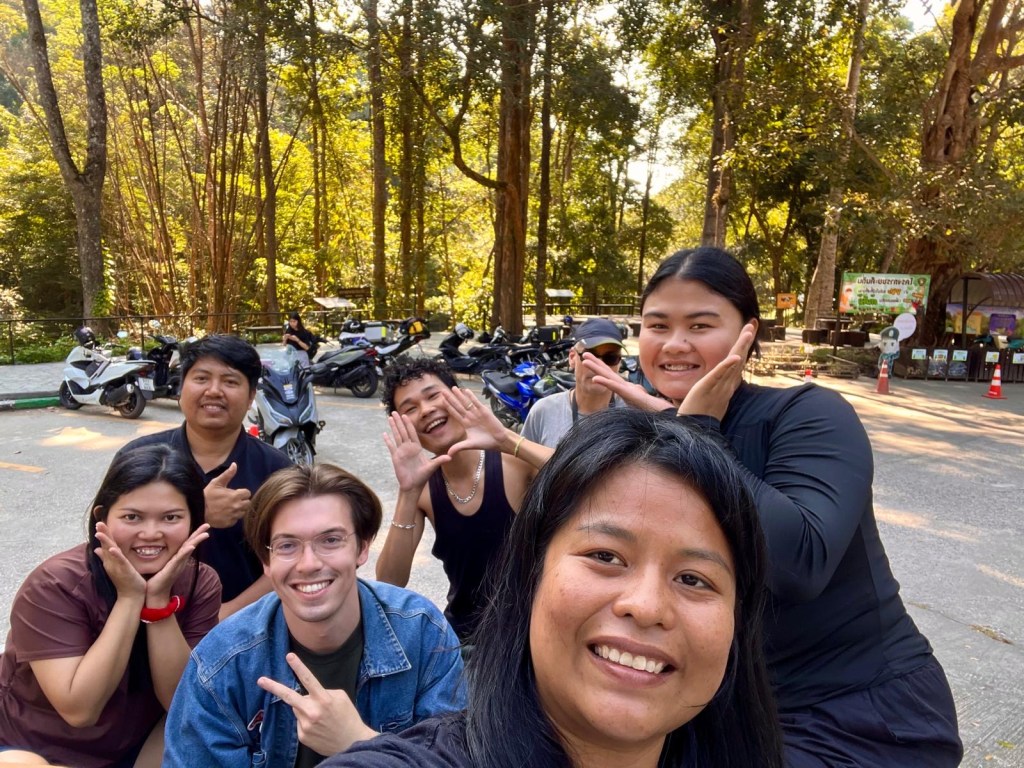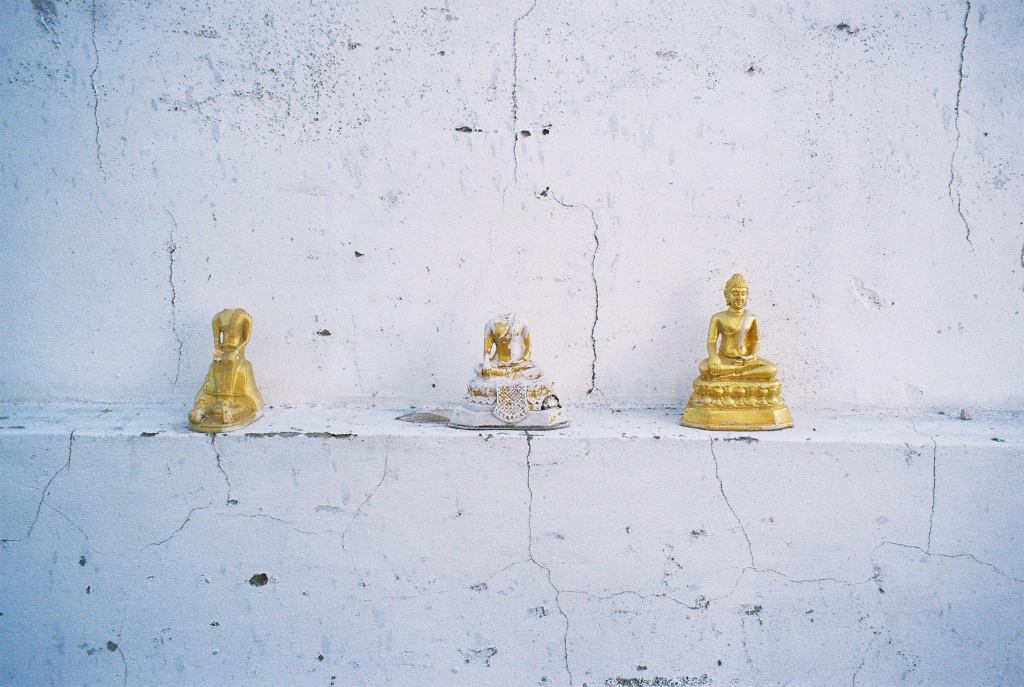In honor of Valentine’s Day – our resident Group 134 couple, Cadi Duncan and Bradford Reszel, answered some common questions they get asked about what their experience serving as a couple in the Peace Corps is like!
As a couple, how did you decide to apply for the Peace Corps? What was that process like?
(Cadi) I worked as a teacher in a low income multi-linguistic school for 5 years. I enjoyed working with and learning more about my students from all over the world. I wanted to gain experience working abroad to be a more resourceful and empathetic teacher.
Bradford had several roles that worked directly with the community, the most impactful one being Project Return – a non-profit that worked with formerly incarcerated people. As a couple, we wanted to be a part of a larger purpose, a purpose that helped and encouraged people around the globe. After doing our research, we found that the Peace Corps fit our values so we applied.
We applied as a couple which meant that, should we both be accepted, we would be placed in the same country. We each filled out our applications, wrote our essays, and completed the necessary health history forms. Since we applied during the height of COVID-19, we had a lengthy wait between our initial application and interviews – approximately 7 months. Once Peace Corps HQ resumed the application process, we first interviewed separately and then together as a couple. After we accepted our invitations to serve in Thailand (a year later than expected) we began the process of medical and security clearance – a process that took around 5 months total between the two of us. Overall, our application-to-staging was the same amount of time we’ll be in-country: 27 months.

What’s the biggest misconception about couples serving together?
That we have only one experience. While we live together, we work at separate schools and therefore have separate challenges and successes. Serving together doesn’t mean we are together all the time and that we can’t get lonely. In reality, it’s more like having three experiences in one: one for each partner and one as a couple.
How do you support each other at site?
Listening and venting are huge supports we give each other. If someone has a tough day, the other can listen and empathize without comparing. Taking out the comparison is a major part of support. It’s easy to say, “Yeah the same thing happened at my school…”, but usually we just want to be heard without needing advice or comments.


How do you think serving as a couple is different than serving individually? What happens at site to make that noticeable?
We get plenty of attention at site, similar to what individual volunteers say about their service. The difference, we think, is that community members notice when we’re alone and wonder why. It is out of a sense of protection, we know, but we still each like to be treated as our own person. The questions we get are more “couple-centered” as well such as: “Do you have kids?” “When will you have kids?” “Are you pregnant?” “Why not?”
What’s the biggest challenge of serving as a couple?
We are typically thought of as a unit rather than two individuals. This can sometimes prove to be challenging when we’re wanting to offer assistance on a secondary project or trying to individually integrate into the community. We’re inevitably asked how our partner will participate or where they are and, as previously mentioned, we also want our own experience outside of our couple experience.

Any advice for couples looking to serve/starting their training?
(Bradford) Use the time together to have great conversations, fun debates, and plan life together. Whether you’re a newly married couple like us (two years in May ‘24), or have been together for decades, couples can really dive deep into learning about their partner and their relationship. Being intentional with this time together in building our foundation has been such a highlight of our service overall.
(Cadi) You and your partner will experience so many changes in a short amount of time. Be honest about the transitions and what you need to feel supported and successful. Be open-minded and take your service one day at a time. Some days will be difficult while others will be fantastic – it’s ok! Enjoy every high and low with your partner and built in PCV best friend.

Read Bradford’s previous articles and contributions.
Read Cadi’s previous articles and contributions.





Share your thoughts